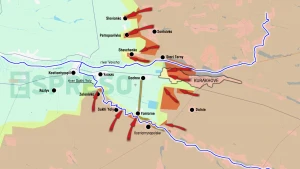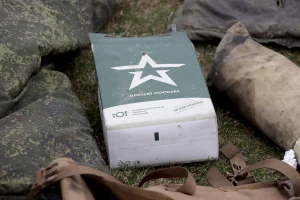
EU exports to Russia drop to 37% of pre-war level
After the start of Russia's full-scale military aggression against Ukraine in early 2022, the European Union's exports to Russia fell to 37% of the pre-war level
This is evidenced by data from the Munich Institute for Economic Research Ifo, Spiegel reports.
The still large volume of exports to Russia is the result of the fact that only 32% of all EU goods are subject to sanctions.
"As for luxury goods, for example, the export of champagne to Russia is sanctioned, but not Prosecco," said Feodora Teti, deputy head of the Ifo Foreign Trade Center.
At the same time, many goods under EU sanctions can be supplied to Russia through third countries.
According to Ifo, due to export restrictions imposed by the EU and other Western countries, Russia has about a third less sanctioned goods than before the war.
"For Russia, China is the most important alternative country of origin for sanctioned products: 61% of these goods come from China," the article says. In 2021, the share was 35%.
Russia receives 13% of the West's sanctioned goods from Turkey, up from just under 3% in 2021.
Russia also receives a small share from Armenia - about 1%. It is noted that during the same period, exports from the EU to Armenia doubled.
"In the case of China, the increase in exports to Russia can be at least partially explained by the growth of domestic production. However, in the case of Turkey and Armenia, the sudden and sharp increase in exports to Russia raises suspicions of sanctions evasion," Teti added.
According to the latest data from the Federal Statistical Office, German exports to Russia in November 2023 decreased by about 38% to about EUR 0.8 billion. Accordingly, at the same time, Russia was ranked 16th among the most important countries of destination for German exports outside the EU. In February 2022, before the full-scale invasion of Ukraine, the country was in 5th place.
- On December 18, the European Union approved the 12th sanctions package against Russia. It contains a ban on the direct or indirect import, purchase or transfer of diamonds from Russia. This ban applies to diamonds originating in Russia, diamonds exported from Russia, diamonds transiting through Russia, and Russian diamonds processed in third countries.
- In addition, as of January 1, 2024, the direct ban was extended to non-consumptive natural and synthetic diamonds and diamond jewelry. There is also an indirect ban on imports of Russian diamonds during processing (i.e. cutting and/or polishing) in third countries, including jewelry containing diamonds originating in Russia. It will be gradually introduced from March 1, 2024 to September 1, 2024.
- News














































